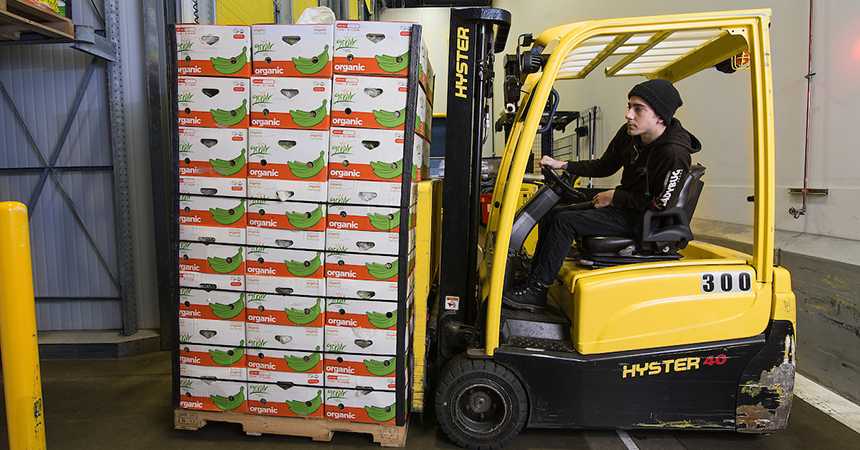“We love this, and it’s so aligned with our mission,” Kate Danaher of RSF Social Finance remembers telling the leadership of Organically Grown Co. when they first approached her in 2017. “Unfortunately I don’t see how we could help you out!”
Two years after the idea of transferring ownership into a Purpose Trust sounded crazy, Danaher was addressing the first annual stakeholder meeting for the Sustainable Food Perpetual Purpose Trust, the “stakeholder” entity that now owns 100% of Oregon-based Organically Grown, a large distributor of organic produce in the Pacific Northwest. (RSF ultimately provided a $10 million loan to help buy out previous shareholders, as well as $1 million in working capital.)
The meeting in Portland last week included a room full of 150 stakeholders representing the five groups to whom the Purpose Trust is accountable: coworkers, growers, community allies, customers and investors.
New Revivalists are using these six strategies to revive entrepreneurship and the American Dream
To kick the day off, Joe Rogoff, one of three ‘Trust Protectors’, or ‘keepers of the mission’ for Organically Grown, and a former regional president at Whole Foods, asked the members of each of the five stakeholder groups to stand up in turn. It quickly became clear we were experiencing a truly unique change from the existing paradigm of ownership and power.
As CEO Elizabeth Nardi and Natalie Reitman-White, VP of “organizational vitality,” like to say: “Organically Grown is an activist organization”.
A couple of years ago, 38 years into their history as organic food and farming pioneers, they had the insight that it was time to seek out a new ownership model in order to preserve what they had built at OGC.
The solution they came up is what has come to be known as “Steward Ownership”: an ownership structure that puts mission ahead of profits and ensures a balance of power and return among stakeholders. And with the perseverance of activists/entrepreneurs who had spent a lifetime fighting to fix our food system, Organically Grown found investors like Purpose Network, RSF and Candide Group who were willing to think outside the box and make their vision a reality.
The first paradigm shift has to do with governance – who is calling the shots?
None of us in the room are ‘owners’ of Organically Grown in the traditional sense of the word. None of us wields outsized power. The Trust is the sole owner of Organically Grown and its role is to ensure that OGC sticks first and foremost to its mission of promoting sustainable agricultural practices, while adequately balancing the interests of the various stakeholder groups.
If there was one thing that was not missing in the room on Friday, though, it was a “sense of ownership”. Every person in that room seemed to be genuinely invested in the success of OGC and this new ownership model. As one coworker noted, “We had never had a unanimous vote on any decision in the history of Organically Grown, until this one. Every single one of us raised our hands in favor of this transition.”
The second paradigm shift has to do with economics – where does the money go?
When the company generates profits (as it has reliably done for the past 40 years), those profits will be shared among all five groups. No one is capturing an outsized portion of the pie and no one is benefiting at the expense of others. Imagine that: if investors are better off, then by definition so are coworkers, growers, customers and community allies.
Stakeholder capitalism is no longer a fringe concept. CEOs of the world’s most powerful corporations are declaring the need for a new capitalism which delivers value to all stakeholders, instead of prioritizing shareholders over all others. The Business Roundtable last August specifically listed the same 5 stakeholder groups as the ones represented in the room last week.
Stakeholder primacy: CEOs redefine the role of business in society
Some have dismissed these statements as worthless lip service. Others have celebrated them as a sign that a new age of capitalism has arrived.
As one of the investor stakeholders at Organically Grown, I’m proud to be part of an effort that aims to do something better than to merely celebrate or dismiss these statements. We are showing how these statements can turn into reality in the form of companies truly and legally designed to benefit all stakeholders.
Aner Ben-Ami is a founding partner of Candide Group.











